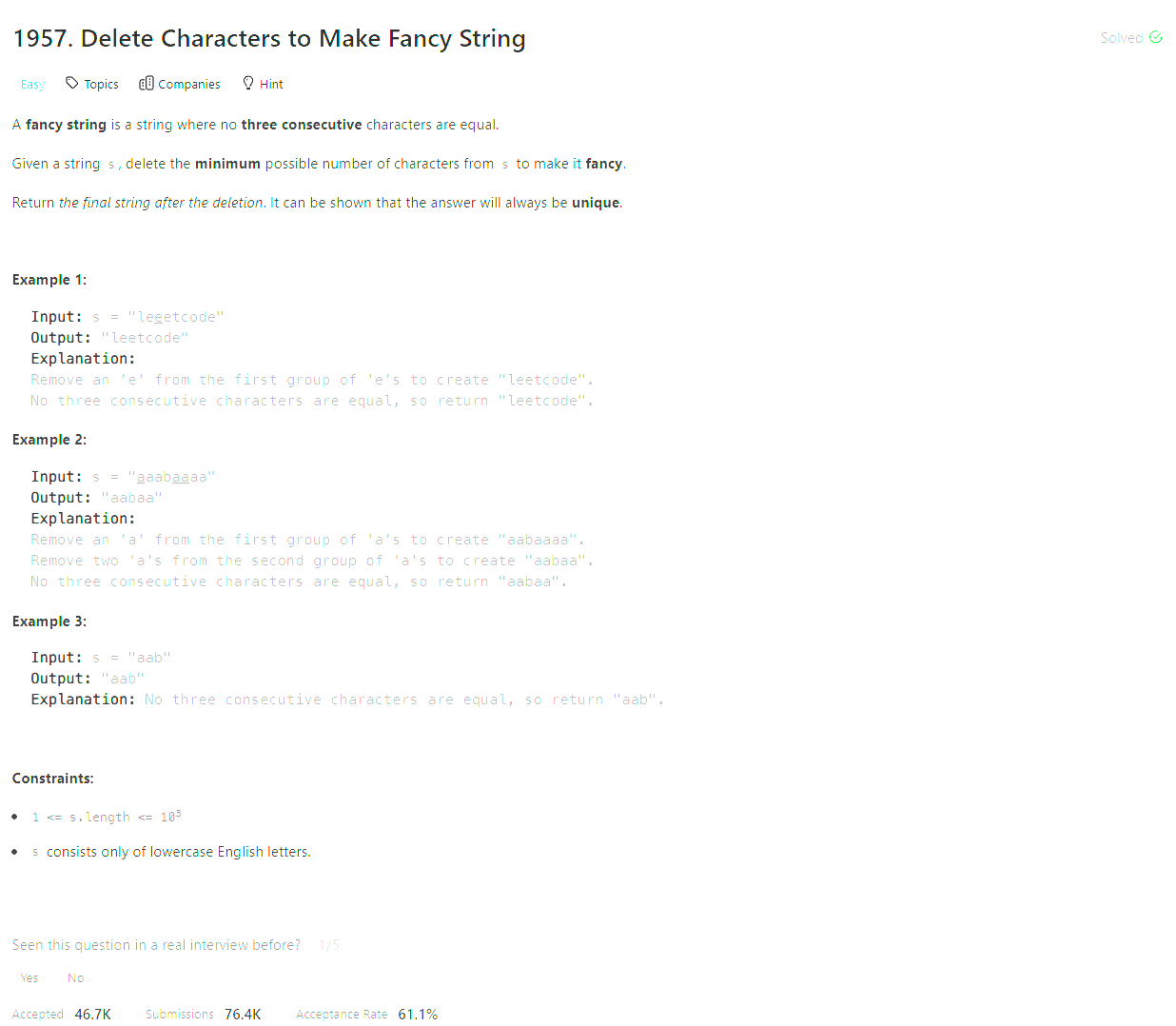Problem of The Day: Delete Characters to Make Fancy String
Problem Statement

Intuition
The goal of this algorithm is to remove consecutive characters from a string if they appear three or more times in a row. The idea is to iterate through each character and keep track of the previous character and its count. This helps us decide when to skip adding a character to the result to avoid having three consecutive identical characters.
Approach
- Initialize an empty list
stackto store the resulting characters. - Use a variable
prevto keep track of the last character added to the result and acountvariable to track consecutive occurrences of this character. - Iterate through each character
cin the string:- If
cis the same asprev, increase the count. - If
cis different, reset the count to 1. - If
countis less than 3, addcto thestack. Otherwise, skip it.
- If
- Update
prevtocafter each iteration to reflect the most recent character added tostack. - Finally, join the characters in
stackto form the final string without any three consecutive identical characters.
Complexity
-
Time complexity: (O(n))
We iterate through each character in the input stringsonce, wherenis the length of the string. -
Space complexity: (O(n))
The stack list may store up to all characters insif none are skipped, resulting in an (O(n)) space requirement.
Code
class Solution:
def makeFancyString(self, s: str) -> str:
stack = []
prev = ''
count = 0
for c in s:
if stack:
if prev == c:
count += 1
else:
count = 1
if count >= 3:
continue
else:
count = 1
prev = c
stack.append(c)
return ''.join(stack)
Approach 1: Insert characters in a new string
class Solution:
def makeFancyString(self, s: str) -> str:
prev = s[0]
frequency = 1
ans = s[0]
for i in range(1, len(s)):
if s[i] == prev:
frequency += 1
else:
prev = s[i]
frequency = 1
if frequency < 3:
ans += s[i]
return ans
Approach 2: In-Place Two-Pointer Approach
class Solution:
def makeFancyString(self, s: str) -> str:
# If size of string is less than 3, return it.
if len(s) < 3:
return s
# Convert the string to a list for mutability.
s_list = list(s)
j = 2
# Iterate through the string from index 2.
for i in range(2, len(s)):
# If the current character is not equal to the previously inserted
# two characters, then we can add it to the result.
if s_list[i] != s_list[j - 1] or s_list[i] != s_list[j - 2]:
s_list[j] = s_list[i]
j += 1
# Resize the list to the number of valid characters and join it back into a string.
return "".join(s_list[:j])